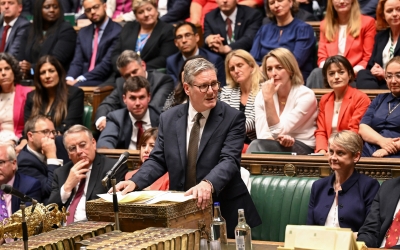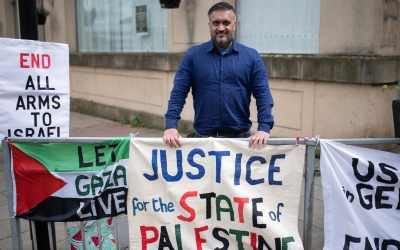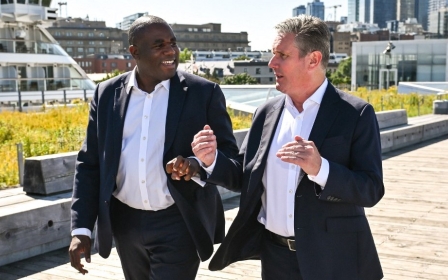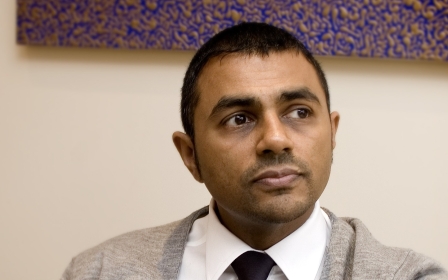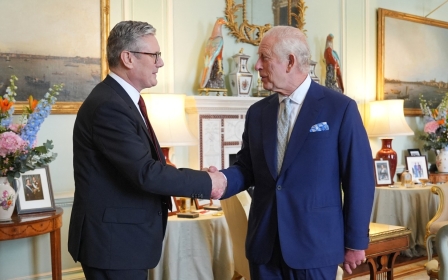New Muslim group ‘supported by Labour’ aims to challenge MCB's leadership
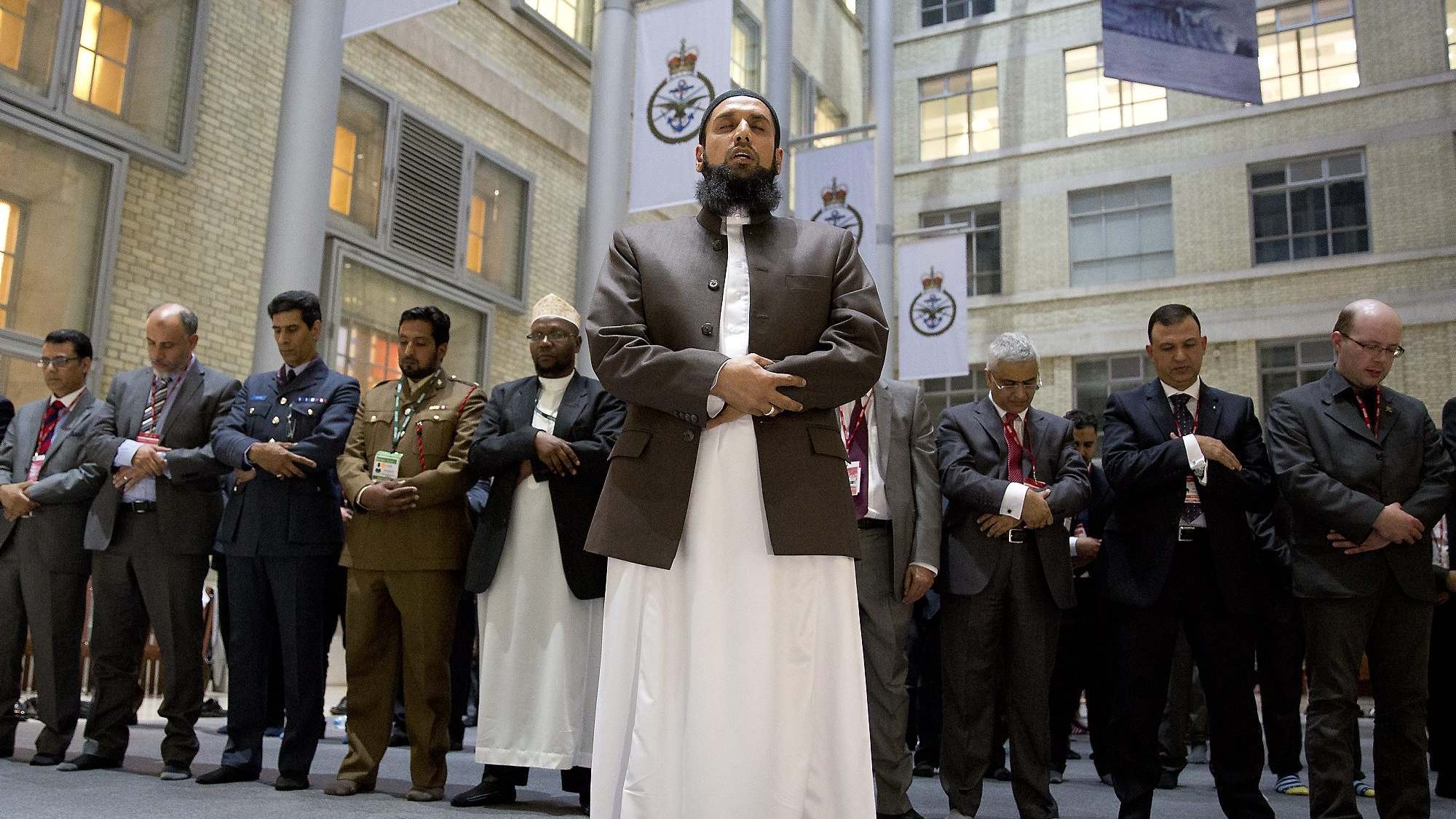
The Labour Party is supporting the creation of a new Muslim leadership group intended to become the primary point of engagement between Keir Starmer’s government and Muslim communities in the UK, Middle East Eye can exclusively reveal.
A draft document setting out plans for the network seen by MEE describes its core objectives as including “to influence public policy in a way that safeguards and promotes the rights of British Muslims”, and “to influence the media debate around Muslims in Britain”.
“The initial focus will be creating a credible group that engages with the government of the day and over time take on a wider remit of support for Muslim representation and leadership development,” the document says.
The new network appears to pose a direct challenge to the claims to leadership of the Muslim Council of Britain (MCB), the largest body representing Muslim organisations in the UK.
“The government and policy makers are not easily able to access, connect or seek credible and expert advice from diverse British Muslim communities,” the proposal document says.
New MEE newsletter: Jerusalem Dispatch
Sign up to get the latest insights and analysis on Israel-Palestine, alongside Turkey Unpacked and other MEE newsletters
“There is a dire need for a credible group which a range of institutions, both public and private, can easily access, trust and engage with.”
Asked for comment, a spokesperson for the MCB urged the government not to exclude the organisation, and warned that previous attempts to “manufacture consent” in Muslim communities had been repeatedly rejected.
Former army imam
Key figures involved in the new group, provisionally known as the Muslim Leadership Council, are understood to include Asim Hafiz, a former British Army imam; Julie Siddiqi, the former executive director of the Islamic Society of Britain; and Dilwar Hussain, the founder of the New Horizons in British Islam think tank.
Others who have been involved in discussions include Labour MP Shabana Mahmood, who was appointed last week by Starmer as lord chancellor and secretary of state for justice.
'The first few meetings had a broad section of the community and met after the start of the war as the community realised Labour was losing support in Muslim communities'
- person involved in talks
Brendan Cox, the husband of Jo Cox, a Labour MP murdered by a far right-inspired gunman in 2016, is also understood to be involved through his work with a number of campaign groups focused on community cohesion and integration.
Labour has been trying to reach out to faith communities through a project called Faith in Labour which was co-created by a consultancy, the Good Faith Partnership.
Myra Johnson, the Good Faith Partnership's director of communications, told MEE: "The Good Faith Partnership has had no involvement in the creation of this group."
The Good Faith Partnership works closely with Baroness Sherlock, formerly Labour’s shadow faith minister, who before the election said the government would appoint a “minister for faith engagement” and would see “faith as an asset and a way to build social cohesion”.
Sherlock’s parliamentary staff include Russell Rook, a founding partner of the Good Faith Partnership who is currently “seconded part-time to the Labour party as a civil society adviser”, according to the House of Lords register of interests.
Ahead of last week’s general election, Sherlock met Hafiz and other Muslim leaders at Labour’s party headquarters.
Posting about the meeting on social media, Sherlock wrote: “Grateful for honest conversations, their immense contribution and the prospect of working together to bring about change.”
Asked about his involvement in the project, Hafiz told MEE: “I have been involved in a number of conversations with British Muslims over the past few months, all focused on how to increase our collective voice in domestic and foreign policy following years of marginalisation.
"No political party or entity has been involved in shaping or convening those conversations.”
Others MEE understands to be involved who were approached for comment had not responded at the time of publication.
But sources familiar with the project, all speaking on condition of anonymity, told MEE it had come about after senior figures from Muslim charities and NGOs attended meetings and workshops at the end of last year.
One person, who said they had declined to be part of the new group, said these had been prompted by what was perceived as a “vacuum of leadership within the Muslim community” after the 7 October Hamas-led attacks in southern Israel and the start of the war in Gaza.
Another person told MEE: “The first few meetings had a broad section of the community and met after the start of the war as the community realised Labour was losing support in Muslim communities.”
Further meetings were held following the start of the general election campaign in April, with plans for the group gathering momentum in expectation of the new Labour government.
One person told MEE: “These meetings were not organised by the Labour Party but they are definitely supporting and encouraging it.”
'Who are they accountable to?'
According to the draft document, the new group will initially be launched as an informal network of between 15 and 18 people which would then be registered as a charity with strategic decisions taken by a central committee.
Sources told MEE the plans are loosely modelled on the structure of the Jewish Leadership Council, an umbrella group representing Jewish organisations which works closely with government and public bodies.
They said it is hoped the group will be active in time to meet Starmer within his first 100 days in office.
'With a new government, now is the time for fostering meaningful dialogue and regaining the trust of British Muslim communities'
- Zara Mohammed, Muslim Council of Britain
Sources familiar with the plans said the new group is also being pitched as a body that can help the government reach Muslim communities without having to talk directly to the MCB.
They drew parallels with the launch in 2006 of the Sufi Muslim Council, which was also backed by the Labour government of the day but dismissed by the MCB as “a motley crew of discredited figures”.
The MCB last week welcomed Labour’s general election victory as “an important moment for change”, and said it was looking forward to meeting the new government.
Zara Mohammed, the MCB’s secretary general said: “With a new government, now is the time for fostering meaningful dialogue and regaining the trust of British Muslim communities.”
But successive governments have mostly refused to engage with the MCB since the last Labour government initially suspended ties in 2009 after the organisation's then-deputy secretary general signed a declaration in support of Palestinians’ right of resistance following Israel's three-week war in Gaza, known as Operation Cast Lead, between December 2008 and January 2009.
Labour restored ties before its defeat in the 2010 general election, and MCB officials held a number of meetings with Liberal Democrat ministers during the Conservative-led coalition government that followed until 2015. But Conservative Party ministers refused to meet MCB officials between 2010 and 2024.
One source said: “Given that there is an unofficial ban on engaging with the MCB within central government, and among civil servants, this group is a way of circumventing that ban. But who are they accountable to?”
An MCB spokesperson told MEE: “While successive governments have engaged other faith communities as they are, British Muslims are treated differently.
"Previous attempts to manufacture consent on behalf of Muslim communities by government appointed forums of ‘acceptable’ Muslims have been repeatedly rejected as they operated without any agency and produced no results.
"We would urge the new government to recognise the rich diversity of British Muslims and ensure credible, democratic bodies such as the Muslim Council of Britain are not excluded from such conversations.”
Asked for comment, the Labour Party referred MEE to the Ministry of Housing, Communities and Local Government, which had not responded at the time of publication.
Middle East Eye delivers independent and unrivalled coverage and analysis of the Middle East, North Africa and beyond. To learn more about republishing this content and the associated fees, please fill out this form. More about MEE can be found here.


